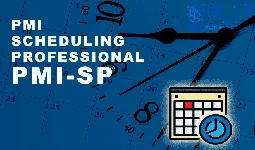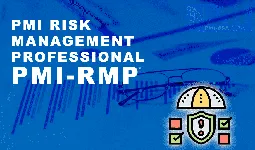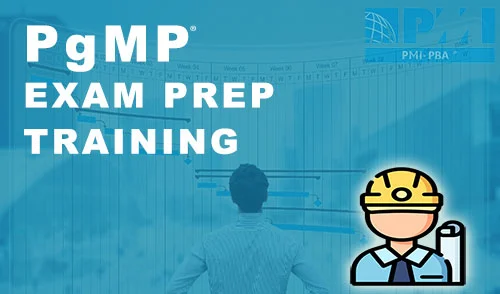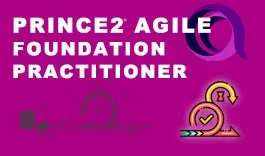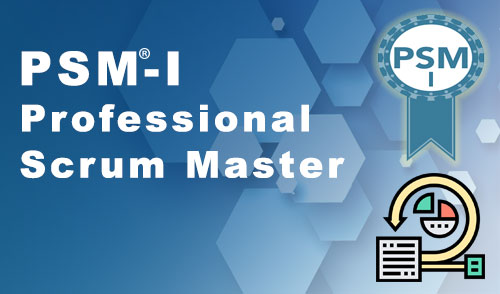CSM vs. PSM - Which Scrum Certification is Better?
-
 By Syed Irfan
By Syed Irfan - Published on Mar 14 2023

Table of Contents
Introduction
Most IT companies want to recruit people who can use agile and Scrum in complicated settings in today's world. CSM and PSM I are two separate Scrum Master certificates. Reputable regulating organizations provide PSM I and CSM qualifications.
Are you, like many others, unsure about which certification to pursue? Professional Scrum MasterTM I (PSMTM I) or Certified Scrum Master® (CSM®)?
Scrum may pique your attention for a variety of reasons, including the possibility of working as a Scrum Master for a company. Both of these certifications will be discussed in detail in this blog.
Here are the formal definitions of these two topics so that we may proceed with our discussion.
About CSM® (Certified Scrum Master)

If you're ready to embrace agile and deploy Scrum, or if you want to improve your Scrum skills, our Certified ScrumMaster® (CSM®) course is for you. This fundamental course will provide you with a thorough grasp of Scrum and how to use it to manage your team and company.
Professional Scrum MasterTM I (PSMTM I) is an abbreviation for Professional Scrum MasterTM I. Anyone who wants to confirm their depth of understanding of the Picture Scrum framework and its implementation may take the Professional Scrum MasterTM level I (PSM I) exam.
Those who pass the exam will award the industry-recognized PSM I Certification, demonstrating their core level of Scrum expertise. Scrum Alliance offers a certification called Certified Scrum Master® (CSM®). Certified Scrum Master® is the most popular Scrum Certification worldwide.
Certification Process: To become a Certified Scrum Master®, professionals must attend live sessions, review lesson insights from the iZenBridge e-learning platform, study for and pass the Certified Scrum Master®'s test, and claim the certificate.
Your CSM® certification will send to you through email. Scrum Alliance will offer you the distinction of Certified Scrum Master® (CSM®) if you complete this Certified Scrum Master® training procedure and pass the test.
Exam Format: The Certified Scrum Master® Exam will include multiple-choice questions. Professionals will give 60 minutes (1 hour) to complete 50 MCQs. Passing the test, a score of 74 percent is required. It amounts to answering at least 37 of 50 questions correctly.
What comes after CSM® – Following the completion of the Certified Scrum Master® Certification, you may pursue further qualifications such as Advanced Certified Scrum Master® Certification (A-CSM®) and Certified Scrum Professional® – Scrum Master Certification (CSP®-SM).
Professional Scrum Master I (PSM I) Governing Body - Scrum.org offers the Professional Scrum Master I (PSM I) title. Professional Scrum Master® is an industry-recognized certification course that shows essential Scrum mastery.
Professional Scrum Master may take the PSM I exam immediately to become a Professional Scrum Master I. There are, however, courses available to assist students in preparing for the exam and developing a better grasp of Scrum.
Scrum.org will offer you the title of Professional Scrum Master (PSM I) if you complete this Professional Scrum Master I certification procedure.
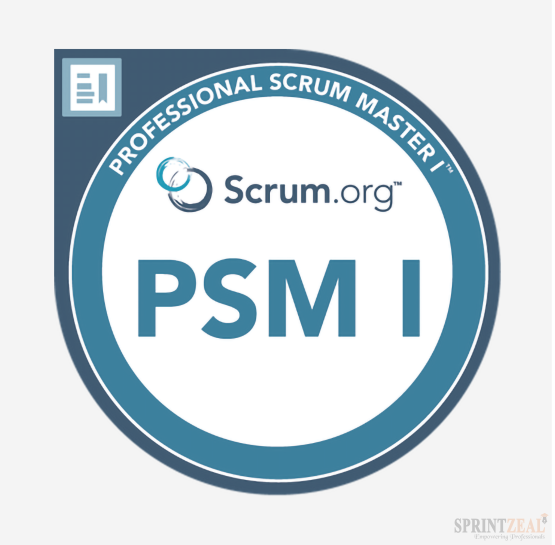
The Professional Scrum Master I Assessment will be based on multiple-choice, multiple answers, and true/false questions. Professionals will give 60 minutes (1 hour) to answer 80 questions. To pass the test, students must get an 85 percent score.
What comes after PSM I - After getting Professional Scrum Master I Certification, you may pursue additional credentials such as Professional Scrum Master II (PSM II) and Professional Scrum Master III (PSM III).
Enroll in Professional Scrum Master (PSM) Certification and get certified
Primary Distinctions Between CSM and PSM Certification
Agile and Scrum are the two dynamic technologies that are now controlling the software business; most IT-based organizations and corporations are eager to employ people acquainted with all agile and Scrum things, frameworks, and applications.
Those with IT certifications earn $17,000 more per year than those without, according to a recent Forbes Magazine storey. Employees benefit from certificates since they allow them to exhibit extra credentials on their resumes while also getting employed quicker.
The need for qualified agile scrum experts is increasing. The two most essential qualifications for the scrum master to further his career are Certified Scrum Master (CSM) and Professional Scrum Master (PSM).
Before I go into the specifics of these qualifications, let me introduce you to the world of Scrum.
How does Scrum operate, exactly?
Scrum is an iterative framework or work management technique that assists in meeting the most goals suitably. Scrum has a broader reach than only workshops or seminars; it is a full-time vocation. Scrum masters are professionals who design scrum frameworks for businesses. The two scrum master qualifications are CSM and PSM. Many individuals have inquired about them. Let's look at how these two came to be.
During the 1990s, engineers in companies were failing to deliver the right results. Companies then felt the need to find a new way to decrease production while increasing productivity.
Ken and Jeff, two software engineers, came up with this iterative framework, and later in 2002, they found a scrum alliance and set up shop. Professional scrum master (PSM) and Certified scrum master (CSM) (PSM).
Both the CSM Certification and the PSM Certification are focused on software development, and each has its significance and greater reach. Don't worry if you're perplexed; let me explain in detail which of them is superior. One will offer more value to your profession, and which should you choose? Let's take a closer look.
How can I get certified?
In terms of CSM, it is similar to any other diploma or degree program in that you must enroll in the college and attend all courses and assignments. Finally, you must pass the CSM exam, and you have just two chances to do so.
PSM, on the other hand, is not the same as CSM. There is no need to attend any courses for this program, nor is there any need to take any tests for PSM 1 & PSM 2.
The two accepted Scrum Master qualifications are CSM and PSM. What's the distinction? There are several one-sided "comparisons" available. We provide you with an honest one, developed collaboratively by a Scrum Alliance and a scrum.org trainer.
The Scrum Alliance
The Scrum Alliance was the first to provide a Scrum certification program, and their Certified Scrum Master (CSM) is the first known qualification.
Scrum.org
Ken Schwaber, one of the Scrum Alliance's founders, departed to form Scrum.org, launched a competitive credential called Professional Scrum Master (PSM).
Which certification is better?
The primary distinction between a CSM and a PSM certification
The certification's foundation is the primary difference between Scrum Alliance (Certified Scrum Master – CSM) and Scrum.org (Professional Scrum Master – PSM).
The Scrum Alliance certifies people once they engage with a Certified Scrum Trainer (CST) or a Certified Enterprise Coach (CEC). The certification at Scrum.org is based on an exam.
Unlike the Scrum Alliance, Scrum.org stresses the separation of training and certification. The two factions parted because of their differing views.
A Scrum Alliance Certified Scrum Master has always had formal training. A Scrum.org Professional Scrum Master has passed the exam - he does not need to have received training.
What is the primary difference between licensed and unlicensed Scrum Training?
The standard that certified trainers must meet is exceedingly high. It is a Certified Scrum Trainer at Scrum Alliance (CST).
Also, it is a Professional Scrum Trainer, according to Scrum.org (PST). To become a trainer, you must have many years of experience, co-training, and a committee test. To keep your license as a trainer, you must show continual personal improvement. Licensed training is often participatory seminars with "training from the back of the room."
Training that does not include licensed trainers (i.e., a CST of Scrum Alliance or a PST of Scrum.org) is not subject to quality control.
Frequently, trainers lack many years of experience. As a consequence, information is often wrong (e.g., "the product owner approves the increment in the Sprint Review"), and training is didactically problematic (slide show). If that hadn't been the case, the trainer would have undoubtedly gotten himself (or herself) qualified.
Difference between CSM Training and PSM Training
The Scrum Alliance gave the information, and Scrum.org is the same in a formal course with a qualified trainer. The qualifications for becoming a certified trainer are likewise comparable.
On the other hand, CSM training must always perform by a Scrum Alliance-licensed trainer. Therefore, a "CSM Training" is a quality label for the training.
The issue with seeming "PSM training" is not constantly legitimate training. Because the test may take without exercise, numerous unlicensed trainers will pay you to take the PSM exam. It is sometimes unclear to laypeople if it is a "PSM training" or a "training with PSM exam."
How to Obtain a Certificate of Achievement
Scrum Alliance's CSM certification may be obtained in as little as two days of class or training. If you're doing CSM as a diploma course, you may go to any college or university of your choice. You may enroll at that college, go to lectures, and turn in assignments there, if you like. If you keep in mind that there are only two chances to pass this certification exam, it will be easier for you.
In contrast, the Scrum.org PSM certification test is not that simple. PSM certification comes in three levels: PSM I, PSM II, and PSM III.
For PSM certification, you must acquire a password from scrum.org. The PSM I test may take straight if you have a high degree of scrum knowledge. However, it is necessary to have a few years of experience using Scrum in a real-world context.
Rank Promotion
When comparing PSM to CSM, this is a crucial distinction to keep in mind. At least 69 percent marks or 24 accurate answers out of 35 questions. However, passing the PSM certification test requires a score of at least 85%. Because of this, the Certified Scrum Master (CSM) certification has a lower passing score than the Professional Scrum Master (PSM) certification.
There is a significant variation in the test format between PSM and CSM. There are more different questions in the PSM certification exam than in the CSM certification exam, consisting of simple multiple-choice questions. So, look at the test patterns for CSM and PSM — they are different.
Question types covered by the PSM-I include true/false, multiple-choice, and multiple answers.
True/False, True/False, and True/False questions include PSM-II.
PSM-III consists of various question types, including multiple-choice, short-answer, true-false, and essay.
Level of the Exam
The PSM exam is substantially more challenging to pass than the CSM test. CSM exams may take following a two-day training course.
If you already know how to deploy Scrum, PSM-I does not need more training. PSM-II and PSM-III certification examinations are more complicated than PSM-I and need a few years of Scrum Methodology expertise to pass.
According to a detailed analysis of the test levels, PSM certification exams are more complex than CSM certification exams.
Cost of Certification
The CSM certification price ranges from US $400 to the US $2500, depending on the school and tuition rate of the applicant. However, if you fail the CSM test on your first try, you may retake it free within 60 days.
A flat cost is charged for each Professional Scrum Master certification level, regardless of the class you attain. US$150, US$250, and US$500 are the fees for the PSM-I, PSM-II, and PSM-III certification examinations. Additionally, if you fail the PSM-I exam, you may retake it for free within 14 days.
As a result, the cost of certification is the most crucial consideration when deciding between PSM and CSM.
Certification Renewal
You are comparing PSM Vs. CSM, the most crucial factor to consider is the necessity for renewal. An individual's CSM certification is only valid for two years. Every two years, you must pay $100 to renew this accreditation.
The renewal fee amount may also vary depending on the CSM certification test you took. PSM certification does not need to continue after passing the certification test. Without the requirement for renewal, the PSM certification is valid throughout one's lifetime.
Acquiring Certification
Another difference between PSM and CSM certificates is how they are obtained. Attendance, or two days of instruction at an approved institution, is all that is required to get CSM certification. Attendance is not enough to get a PSM certification; instead, it's the examinations that do the trick.
To get the title of "Professional Scrum Master," you must complete tests for each of the PSM certification levels.
The Exam's Content Reliability
CSM certification training is available from a wide variety of institutions. As a result, the training curriculum may differ from one training facility to another and from one trainer to another, making the information unreliable.
For PSM certification, only a few organizations administer the certification exams. The exam's substance stays the same, but trainers' interpretations may differ. PSM test material is highly dependable. However, CSM exam content is deemed unreliable. How consistent is the material of both programs?
Many institutions and trainers offer the CSM program, and as a result, the curriculum content varies widely. PSM, on the other hand, has a single governing organization and a single set of guidelines that all of its teachers must follow.
What is the program's content's dependability?
Because the program material in the CSM changes from trainer to trainer, it isn't easy to maintain the program content's dependability.
Every Scrum trainer develops and interprets their program material. As a result, maintaining the monotony of the quality of the program material is difficult.
Whereas only one body offers the Professional Scrum Master program and its trainers adhere to just one content, the PSM program's dependability is at its peak, and there is no comparison between CSM and PSM content.
Conclusion
Which certification should you pursue? If you'd want to take PSM or CSM, that's up to you. What is more important than the certification is the learning process you go through to get qualified. It is where you gain the most crucial information. I prefer PSM over CSM since the preparatory procedure for PSM is more complicated.
As a facilitator, this enables me to put my students through rigorous learning, resulting in high-quality scrum practitioners. On the other hand, among other essential distinctions, getting rid of the inconvenience of "Renewal" is a huge deal.
If you picked PSM, you've taken the first step toward a more agile future. If you are interested in earning PSM certification, we would be delighted to assist you in achieving your Scrum Master Goal.
If you are still unsure about which certification to choose, let our experts help you out. Kindly send in your query at Click Here or chat with our course expert to get instant guidance. We offer training programs for popular scrum certifications like CSM certification, PSM certification, CSPO certification, and more.
Scrum Certification Courses to Explore:
Certified Scrum Master (CSM) Certification Training
Professional Scrum Master (PSM) Certification
Subscribe to our Newsletters
Popular Programs
PSM® - Professional Scrum Master Certification
Live Virtual Training
- 4.4 (75 + Ratings)
- 8k + Learners
Trending Posts
Product Life Cycle Model: A Guide to Understanding Your Product's Success
Last updated on Oct 11 2023
Agile Methodology Explained in Detail
Last updated on Feb 14 2023
Agile Manifesto - Principles, Values and Benefits
Last updated on Dec 9 2022
Business Agility Guide - Importance, Benefits and Tips
Last updated on Jun 22 2023
Agile Project Management Explained
Last updated on Mar 20 2023
Saturation Stage of Product Life Cycle: Complete Guide
Last updated on Nov 2 2023
Categories
- Agile Management 54
- AI and Machine Learning 42
- Big Data 53
- Business Management 51
- Cloud Computing 44
- Digital Marketing 56
- Information Security 8
- IT Hardware and Networking 17
- IT Security 103
- IT Service Management 29
- Leadership and Management 1
- Microsoft Program 2
- Other 43
- Programming Language 31
- Project Management 162
- Quality Management 75
- Risk Management 8
- Workplace Skill Building 2
Trending Now
List Of Traits An Effective Agile Scrum Master Must Possess
ArticleDevOps Vs Agile Differences Explained
ArticleDevops Tools Usage, and Benefits of Development Operations & VSTS
ArticleAgile Scrum Methodology - Benefits, Framework and Activities Explained
ArticleGuide to Agile Project Management 2024
Article10 best practices for effective DevOps in 2024
ArticleGuide to Becoming a Certified Scrum Master in 2024
ArticleWhy Should You Consider Getting a Scrum Master Certification?
ArticleCSM vs CSPO: Which Certification is Right for You?
ArticleAgile Manifesto - Principles, Values and Benefits
ArticleAgile Methodology Explained in Detail
ArticleAgile Project Management Explained
ArticleEssential Tools for Agile Project Management 2024
ArticleEverything about Scrum Methodology
ArticleScrum Workflow - A Step by Step Guide
ArticleLatest Agile Interview Questions and Answers To Look For In 2024
ArticleScrum Interview Questions and Answers 2024
ArticleTop Scrum Master Responsibilities 2024 (Updated)
ArticleProduct Life Cycle in Marketing: Essential Strategies for Product’s Success
ArticleDevOps Engineer Interview Questions - Best of 2024
ArticleDevOps Engineer - Career path, Job scope, and Certifications
ArticleBusiness Agility Guide - Importance, Benefits and Tips
ArticleScrum vs Safe – Differences Explained
ArticleSAFe Implementation Roadmap Guide
ArticleAgile Release Plan Guide
ArticleAgile Environment Guide
ArticleAgile Coaching Guide - Best Skills for Agile Coaches
ArticleAgile Principles Guide
ArticleSAFe Certifications List - Best of 2024
ArticleAgile Prioritization Techniques Explained
ArticleScrum Ceremonies Guide
ArticleProduct Owner Certifications List
ArticleScrum of Scrums Guide
ArticleWhat is DevSecOps and its Importance
ArticleData Processing - A Beginner's Guide
ArticleDevOps Career Guide 2024
ArticleStakeholder Engagement Levels Guide
ArticleScrum Master Career Path Explained
ArticleScrum Career Path Explained
ArticleTop Git Interview Questions and Answers [Updated 2024]
ArticleA guide to Agility in cloud computing
ebookProduct Roadmap: An Ultimate Guide to Successful Planning and Implementation
ArticleDMAIC Methodology - The Ultimate Guide
ArticleProduct Life Cycle Strategies: Key to Maximizing Product Efficiency
ArticleScrum Master Salary Trends in 2024
ArticleProduct Life Cycle Model: A Guide to Understanding Your Product's Success
ArticleWhat is a Product Owner - Role, Objectives and Importance Explained
ArticleSuccessful Product Strategies for Introduction Stage of Product Life Cycle
ArticleUnlocking Career Opportunities in Product Management: Your Roadmap to Success
ArticleSaturation Stage of Product Life Cycle: Complete Guide
ArticleCutting-Edge Technology of Google Cloud
ArticleHow to Write an Executive Summary for a Business Plan?
ArticleImportance of Procurement Management Software in Modern Business
Article

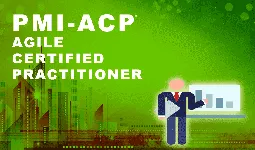
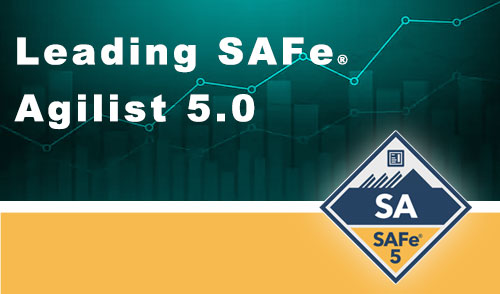

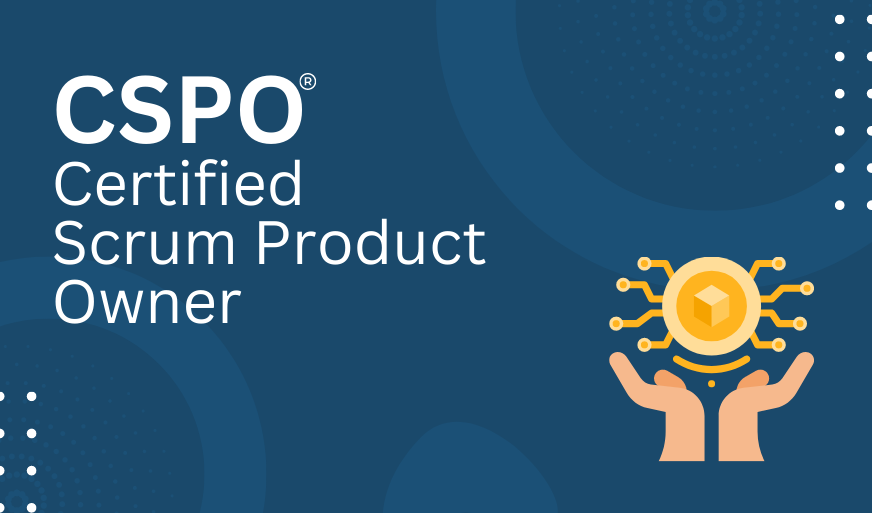
.webp)
